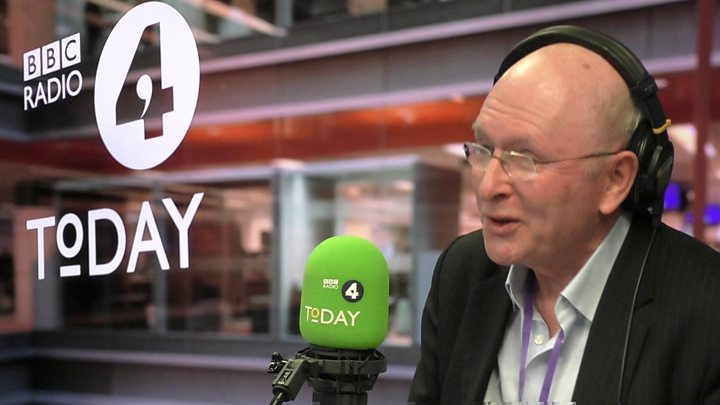Coronavirus: Rescue plan ‘considered’ for Britons trapped on cruise
The Foreign Office is contacting the 74 people trapped in Japan to ask if they want to fly home. …

 Image copyright EPA
Image copyright EPA The Foreign Office is “considering all options” for Britons trapped on a quarantined cruise liner in Japan struck by coronavirus – including flying them home.
Some of the 74 UK passengers and crew on the Diamond Princess said they felt “forgotten”, as other countries flew citizens home.
The ship was quarantined on 3 February.
Meanwhile, a hotel at Heathrow Airport has been block-booked to isolate arrivals suspected of having the virus.
On Monday, Japanese officials said there were 99 new cases of infections on board the ship, bringing the total to 454 confirmed cases. It is the largest cluster of cases outside China.
It emerged that about 3,700 passengers and crew could be stuck in quarantine beyond the initial 19 February deadline.
A Number 10 spokesman said: “We sympathise with all those caught up in this extremely difficult situation.
“The Foreign Office is in contact with all British people on the Diamond Princess, including to establish interest in a possible repatriation flight.”
He said the government is “urgently considering all options to guarantee the health and safety of those on board”.
Earlier, passenger David Abel called for the government to evacuate the British citizens on board, saying: “It feels that we have been forgotten.”
Mr Abel’s son, Steve, said in a message posted on YouTube his parents were beginning to feel the effects of “stress” and “confinement” after 28 days on the ship.
“I want my mum and dad to wake up in the morning and actually have some information sent to them – they need to be communicated with,” he wrote.
All rooms at the Holiday Inn Heathrow Ariel hotel have been booked by the government to quarantine passengers displaying symptoms of Covid-19, the illness caused by the coronavirus.
The move is expected mostly to apply to foreign nationals from the most affected countries who arrive in the UK showing symptoms, BBC health editor Hugh Pym said.
The rooms will be used to isolate suspected cases while test results are awaited.
Meanwhile, Chinese nationals in the UK whose visas are close to expiring will have their stay automatically extended, the government announced.
The Home Office said it recognised that some may be facing uncertainty over their visas due to travel restrictions imposed after the outbreak.
The new guidance issued to Chinese nationals advises that if their visa is due to expire between January 24 and March 30, it will be automatically extended until March 31.
Airlines have cancelled flights and the Foreign Office updated its guidance at the end of January to advise “against all but essential” travel to mainland China.
‘Enormous pressure’
The number of people tested for the coronavirus in the UK has risen sharply, with an additional 1,392 tests carried out on Sunday alone.
It brings the total number of tests to 4,501 as of 14:00 GMT on Monday, with nine confirmed positive.
NHS leaders said they believed the health service was able to cope.
Niall Dickson, chief executive of the NHS Confederation, which represents hospitals and other trusts, said “the system is under enormous pressure” but the NHS is “very used to dealing with emergencies of all kinds”.
He told BBC Radio 4’s Today programme: “There are contingency plans if things get worse.”
Eight of those who contracted the virus have since been discharged from hospital after two negative tests showed they were now clear of the infection.

Media playback is unsupported on your device
All 94 people who had been in quarantine at Arrowe Park Hospital on the Wirral have also been released, NHS England said on Saturday. They had been kept in isolation at the hospital after returning to the UK from Wuhan in China, the centre of the outbreak.
More than 100 people remain in isolation in Milton Keynes after being repatriated back to the UK on a later rescue flight.
‘No need for school closures’
However, schools are being told by they do not need to close or send staff or pupils home if there is only a suspected case of coronavirus, rather than a positive test.
If tests are positive, health protection teams will speak to the head teacher and action will be taken.
The advice from Public Health England comes after some schools in Brighton told concerned parents they can choose to keep their children away from school as an authorised absence, even if a coronavirus case is only suspected.
PHE says that it will continue to advise people who have been in close contact with a confirmed case to self-isolate.
It is believed to have advised at least seven schools in Brighton, Hove and Eastbourne that a member of staff or pupil should stay at home for 14 days.
What are the symptoms of coronavirus and what can help stop its spread?
The main signs of infection are fever (high temperature) and a cough as well as shortness of breath and breathing difficulties.
Frequent handwashing with soap or gel, avoiding close contact with people who are ill and not touching your eyes, nose and mouth with unwashed hands can help cut the risk of infection.
Catching coughs and sneezes in a tissue, binning it and washing your hands can minimise the risk of spreading disease.
Anyone experiencing symptoms, even if mild, after travelling from mainland China, Thailand, Japan, Republic of Korea, Hong Kong, Taiwan, Singapore, Malaysia or Macau, is advised to stay indoors and call the NHS 111 phone service.
What is the government doing?
The main focus is on rapidly identifying people with the disease and taking them to specialist hospitals for treatment in isolation.
They are then tracing anybody who has come into close contact with the patient to make sure they know the signs of the disease and what to do.
The coronavirus death toll in mainland China rose by 105 to 1,770, in figures announced early on Monday morning.
Chinese authorities also reported the number of new cases had increased slightly on the previous day’s figure after falling for three consecutive days.
A total of 2,048 new cases were reported across the country on Monday – 1,933 of which were from Hubei.
More than 70,500 people nationwide have already been infected.
Have you been affected by the issues in this story? Share your experiences by emailing haveyoursay@bbc.co.uk.
Please include a contact number if you are willing to speak to a BBC journalist. You can also contact us in the following ways:

